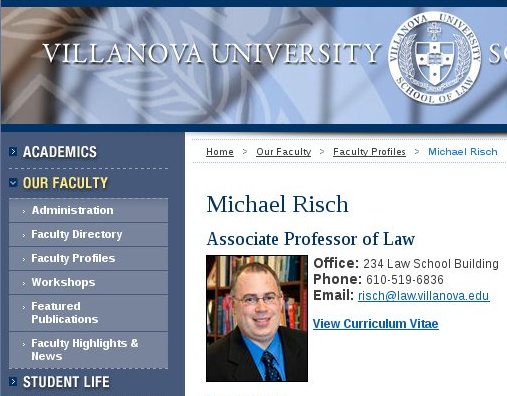

WE HAVE just found this paper which Slashdot helps promote with a link to a discussion. It is an academic study that the author himself promotes in a patent lawyers' site. Quoting Slashdot:
"In a guest post on the Patently-O blog, Villanova University professor Michael Risch summarizes his detailed study into the methods and efficacy of patent trolls. He writes, 'It turns out that most of what I thought about trolls — good or bad — was wrong.... Perhaps the biggest surprise in the study was the provenance of patents. I thought most patents came from failed startups. While such patents were represented (about 14% of initial assignees were defunct), most came from companies still in business in 2010. Indeed, more than a third of the initial assignees were publicly traded, a subsidiary of a public company, or venture capital recipients. Only 21% were patent assertion entities at the time the patent issued, and many of those were inventor owned companies (like Katz) rather than acquisition entities (like Acacia). ... Another area of surprise was patent quality. While trolls almost never won their cases if they went to judgment (only three cases led to an infringement finding on the merits), the percentage of patents invalidated on the merits was lower than I expected.'"
Few players in the patent system (maybe none) are more hated than patent trolls. There is a lot of debate about what it means to be a patent troll, but the commonly accepted definition is a plaintiff that asserts patents (usually acquired ones) but makes no product. More accurate terms are non-practicing entities (NPEs) or patent assertion entities (PAEs), but I’ll keep using trolls here if only to be mainstream.
Commentators (including me) have intuitions about the types of patents that trolls assert; the media is filled with claims. The problem with these intuitions is that they are all anecdotal – we think we know what we know from the limited reporting we see about cases that hit the news. But trolls have been around for a long time (two of the entities I studied brought their first suit in 1986) and they file a lot of lawsuits.
The marriage of Google and Motorola Mobility raises a number of intriguing possibilities, writes Kate Bulkley.
Several years ago the verb ‘to Google’ entered the dictionary. It meant finding something online, generally by using the world’s most popular search engine site. But the recent US$12.5 billion (€8.7 billion) acquisition by Google from Motorola Mobility, which includes the mobile phone handset and set-top box making businesses as well as 17,000 patents, means that for the pay TV industry, and the technology business in general, the term Googling could be taking on a much bigger definition.
Comments
Needs Sunlight
2011-09-07 12:22:44
Dr. Roy Schestowitz
2011-09-07 14:07:10